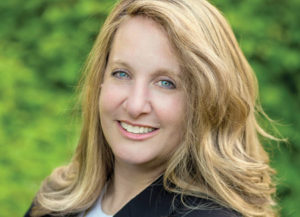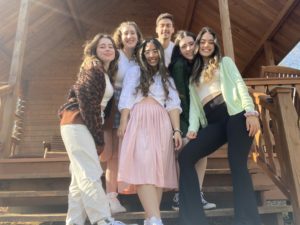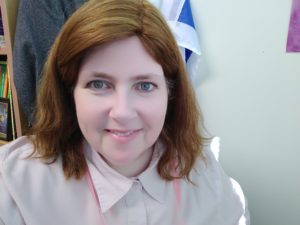As of July 1, the Macks Center for Jewish Education, a former agency of The Associated: Jewish Federation of Baltimore, has reorganized into three new agencies: the Macks Center for Jewish Connections, Jewish Educational Services and the New Jewish Library. These developments allow The Associated to expand their Jewish educational services even further.

According to a recent Associated press release, the new Macks Center for Jewish Connections will help support engagement in the community through a variety of programs, “dedicated to creating new partnerships, initiatives and resources to grow the number of Baltimoreans participating in Jewish life.” Jewish Education Services will provide CJE’s educational services to support Jewish day schools, congregational schools and preschools, along with educators and families. SHEMESH, an Associated program, will also be incorporated into JES. The New Jewish Library, the third initiative, will build on the Jewish Library’s existing archive of more than 16,000 resources to create a larger, more comprehensive community library that will continue to be available to the public.
The transition to the three new organizations is currently in process, and the CJE website is still up while the transition is ongoing, said Lauren Ades, who served as board president of CJE and will be president of the Macks Center for Jewish Connections.
“The Associated’s 2020 Greater Baltimore Jewish Community Study indicated declining connection to Jewish life,” Ades said. “By creating these three new agencies — each with their own distinct missions — we will better be able to strengthen Jewish education and engagement in Greater Baltimore by amplifying and streamlining the work being done in our Associated network.”
In 1921, the Board of Jewish Education was inaugurated. The organization went through several name changes, eventually transforming into the Louise D. and Morton J. Macks Center for Jewish Education. But its mission remained the same: to ensure that Jewish education was accessible to Jews throughout Baltimore, irrespective of their religious affiliation, gender or identity.

Amian Kelemer, who served CJE in various capacities for 30 years, most recently as CEO, said she is optimistic about the changes that CJE is undergoing. Kelemer is now the director of operating programs at the Mayberg Foundation.
“It’s going to be exciting. I think it will be wonderful for the community. There will be new ideas and journeys,” Kelemer said, noting that new change often brings unseen educational opportunities.
Historical roots
For Baltimore’s Jewish community, those opportunities for growth and change began early in its history. The community’s 19th-century founders realized that a board would be needed to oversee the administration of five Talmud Torahs. As the community grew and changed though, so did the expectations placed on educators and the opportunities for expanded Jewish education. Day schools and Hebrew classes increased in demand, and so did the need for more inclusive programs. In 1965, the board launched a department of education for special needs. The announcement received national attention as one of the first Jewish boards to recognize the needs and educational rights of individuals with disabilities.

That step, which preceded the efforts of many larger Jewish communities by at least a decade, would eventually become the springboard for CJE’s expansive network of programs for individuals with disabilities. Gesher LaTorah, a program designed for individuals with disabilities between the ages of 5 and 21, and the Deaf-Blind Shabbaton program helped enrich Jewish connections for community members often marginalized by their disabilities.
“There are a lot of educational needs that can’t be accommodated in the community,” Kelemer said, needs that are often stymied by funding limitations or other challenges. “[Solving such problems] was one of the greatest roles of CJE.”
Building inclusion through lifelong learning

Rachel Turniansky, who has served as CJE’s director of disability and inclusion services, said CJE’s focus on inclusion was expansive and wide-ranging. Turniansky will now be the director of disability and inclusion services for the Macks Center for Jewish Connections, as well as the principal of Gesher LaTorah, now under Jewish Educational Services.
“We support[ed] Jewish learning in a lot of different contexts, including supporting teachers and Jewish schools through a variety of services,” Turniansky said in an interview last year.
Through CJE, teachers had access to professional development courses in disability education and inclusion and less formal programs that supported families. During the pandemic last year, CJE was able to connect families of autistic children with funding for special sensory kits that eased the disorienting experience of online learning.
“Part of my role at CJE [was] to make sure that all the programming … was as inclusive as possible so that individuals with disabilities or families that are impacted by disabilities [could] access any of the programming that we have going on,” Turniansky said, adding that the disability and inclusion services were woven throughout CJE’s programming. “It is really a testament to the commitment of CJE and The Associated in general that this is a part of the core operating values that everything we do.”
Associated President Marc Terrill said The Associated and CJE shared the same goals when it came to inclusive programming. Terrill said The Associated periodically conducts community surveys to determine whether there may be changing needs in the community that could be addressed through new programs or funding. “Twelve years ago, the study identified [a] growing number of people in households who required extra assistance,” he said. The Associated was able to assist in filling that gap. “The partnership with CJE has been a wonderful example of how our Associated network works together to support programs to fulfill our sacred obligation to make sure every Jew feels included and has a space in communal life.”
CJE also served as a resource for teaching staff in schools. Julie Tonti, CJE director of educator services, will now be working for Jewish Educational Services. She said CJE was constantly searching for new ways to promote Jewish education in the classroom, whether it was in a publicly funded school or a religious day school.
“Our mission has been to promote lifelong learning in order to strengthen Jewish identity and Jewish community, and really that goal has been carried out with education as well as engagement,” Tonti said. Educators in synagogues, day schools and public institutions had access to resources through CJE’s educator services and Jewish Library. Neighborhood outreach, like the Community Connector program, helped families and individuals connect with CJE programs.
Common bonds in neighborhoods near and far
Ades described the Connector program as a “grassroots community engagement [program] of families with young children that is neighborhood based.” Ades’ own volunteer service as a neighborhood connector is what led her to serve on the CJE board. “The ability to provide snippets of Jewish education to families that would otherwise be un-engaged was very appealing to me and continues to motivate me to stay involved [with the program],” she said.
CJE’s Israel and Overseas programs used social get-togethers and school programs to teach kids about Jewish culture on the other side of the world. Shevet Achim paired up schools in Baltimore and Ashkelon for online classes and social events. Teen Time Odessa gave kids in Baltimore and Odessa opportunities to practice foreign language skills.
Kelemer said CJE was known as a resource for Jewish culture beyond the boundaries of Jewish neighborhoods and sometimes led to touching encounters, as in the case of a Catholic priest who called her for help.
“There was a father in a Catholic institution that supported a lot of Jewish kids and he called me — this was years and years ago — and asked me how to recite the kiddush,” the Friday night blessing that is said over wine just before Shabbat. “He wanted to make sure that on Friday night the kids were able to hear the kiddush [on erev Shabbat] if they were Jewish. That was just incredibly moving to me,” Kelemer said, adding that while CJE’s work was often enhanced by innovative approaches, it always circled back to education.
“We were constantly ahead in terms of inclusion … relentlessly focused on making sure everything had an underpinning to Jewish education, whether that was Israeli education, inclusion work or the engagement work we did. [We were] doing a lot to be proud of,” Kelemer said.
“Hopefully these will be strong building blocks and [the new agencies] will be able to build on that strong foundation to do more. There is always more to do.”







